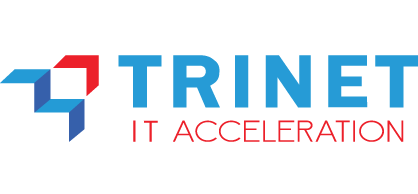Tech Innovation > Security > Data Loss Prevention (DLP)

Data Loss Prevention (DLP)
In the digital era, sensitive information such as customer data, financial documents, and business secrets has become a prime target for cyberattacks.
📌 Data Loss Prevention (DLP) is a technology designed to prevent data breaches, ensure regulatory compliance, and control how data is used within an organization.
Without a DLP solution, companies are vulnerable to
Human Error
Employees unintentionally
sending sensitive documentsn
to external parties.
sending sensitive documentsn
to external parties.
Cyber Attacks
Hackers exploiting security
vulnerabilities to steal
business data.
vulnerabilities to steal
business data.
Regulatory Non-Compliance
Violations of GDPR, PDP, PCI DSS
and ISO 27001, potentially
resulting in substantial fines and
loss of customer trust.
and ISO 27001, potentially
resulting in substantial fines and
loss of customer trust.

Key Features & Capabilities
DLP solutions provide a comprehensive range of features to ensure robust data protection
Show Details
a. Real-Time Data Protection
- Network Monitoring & Inspection: Analyzes, monitors, and blocks outbound data flows across networks, emails, cloud services, and endpoints.
- Endpoint Protection: Monitors user activities and prevents data leakage from unsecured devices.
- Centralized Policy Management: Manages security policies, provides centralized reporting, and enables workflow approvals.
b. Granular Access Control & Policy Enforcement
- Data Classification & Fingerprinting: Automatically identifies and classifies sensitive data.
- OCR-based Data Protection: Scans content within PDFs, images, and emails to detect sensitive information.
- Shadow Copy & Watermarking: Enhances control by maintaining audit trails of critical data.
- User & Device Monitoring: Analyzes user behavior to detect anomalies in data access.
c. Integration & Compatibility
- SIEM & SOAR Integration: Supports integration with cybersecurity platforms for advanced analysis.
- Multi-Cloud SIEMort: Compatible with various industry-leading cloud storage services.
- Multi-Tenant Management: Enables policy management for multiple business units within a single system.

Business Benefits
DLP solutions provide strategic advantages for organizations:
Show Details
a. Prevention of Data Breach Incidents
- Protects sensitive information from unauthorized access and misuse by employees or hackers.
- Enhances control over structured and unstructured data, whether in motion, at rest, or in use.
b. Optimized Security Management & Reduced IT Workload
- Simplifies security policy administration with a centralized system configurable to organizational needs.
- Helps IT and security teams quickly identify anomalies, enabling preventive actions before a data breach occurs.
c. Operational Efficiency & Reduced Security Costs
- Minimizes regulatory fines & litigation risks by ensuring compliance with security standards.
- Reduces reliance on manual training & detection, as DLP systems automatically detect, classify, and prevent data leaks.
d. Ensuring Regulatory & Security Compliance
- Supports compliance with security standards such as ISO 27001, GDPR, PCI DSS, NIST, HIPAA, and PDP Law.
- Avoids fines and penalties associated with customer data breaches or leaks of sensitive information

Use Cases
Data Loss Prevention (DLP) protects sensitive information and ensures compliance across industries effectively.
Show Details
a. Banking & Finance
- Prevents data theft of transactions & customer information with rule-based encryption.
- Ensures compliance with financial data security standards.
b. Healthcare
- Secures patient medical records & ensures regulatory compliance.
- Prevents medical data leaks due to human error or insider threats.
c. E-Commerce & Retail
- Protects customer credit card information from cyber threats & fraud.
- Prevents customer data leaks via insecure email or cloud services.
d. Government
- Prevents leaks of confidential government documents with strict access controls.
- Ensures the security of public data with encryption & anomaly access detection.

How It Works
How Data Loss Prevention (DLP) Works to Safeguard Sensitive Data and Prevent Leaks:
Show Details
a. Sensitive Data Identification
-
Analyzing & classifying personal, financial, and business-sensitive data.
b. Defining Protection Policies
-
Setting rules for who can access, modify, or transmit data.
c. Monitoring & Detecting Suspicious Activity
-
Scanning every data movement across networks, devices, emails, and cloud services.
d. Blocking or Alerting on Breach Attempts
-
If unauthorized data transfer is detected, the system can block or alert.
e. Audit & Reporting for Regulatory Compliance
-
Providing detailed activity reports for compliance and investigative purposes.
Contact our experts for further information












